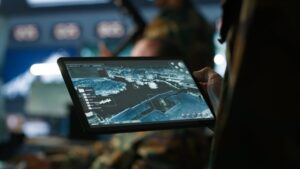Recent National Defense Authorization Acts enacted by Congress have created investigative commissions on issues ranging from the defense budgeting process, the war in Afghanistan to the future of the U.S. Navy.
In fact, in the period from 1989 to 2017, Congress has authorized over 170 congressional commissions “to provide independent advice; to make recommendations for changes in public policy; to study or investigate a particular problem, issue, or event; or to commemorate an individual, group, or event,” according to a Congressional Research Service assessment. Of the commission established between 1989 and 2016, only a small portion of the commissions – 7 percent – were investigative in nature.
The Afghanistan and Navy commissions fall into the investigative category. And while not tied to a specific, single event, the desire to establish these commissions comes from a sense of unease in the outcomes of both the Afghan war and attempts to strengthen the U.S. Navy over the past decade.
But while both of these commissions are populated by capable commissioners, neither is headed by a senior retired military officer or a senior civilian who has the credentials to promote meaningful recommendations and persuade government bureaucracies to act. A senior commission leader is essential to spur change.
Successful commissions with strong leadership
Three specific commissions with strong senior leadership stand out as examples of success, where rigorous analysis led to the implementation of meaningful legislation and executive orders:
The Holloway Commission/Special Operations Review, 1980: This convened in the wake of the failed Iran Hostage Rescue Mission (Operation Eagle Claw and was headed by recently retired Chief of Naval Operations Adm. James Holloway. The Holloway Commission produced a hard-hitting assessment of the problems involved in trying to combine an ad hoc group of special operations components for a challenging mission with limited training time and uncertain command and control. The Holloway report laid the groundwork for the formation of the Special Operations Command (SOCOM) in 1986.
The Long Commission, 1984: This commission was led by recently retired Adm. Robert Long who had led U.S. Pacific Command. It convened at the behest of President Reagan in the wake of the October 1983 terrorist truck bombing of the U.S. Marine Corps barracks building in the compound of the Beirut, Lebanon airport. The commission was critical of the chain of command of the deployed Marines, their rules of engagement, their barrack facilities arrangements and in the mission that put greater reliance on peacekeepers with limited response options as the situation in Beirut deteriorated. Many of the Long Commission report findings were incorporated into U.S. counter-terrorism planning and were used in the justification for improved national command and control of forces in the deliberations for the 1986 Goldwater-Nichols Act. That law has been hugely important as it improved and simplified the operational chain of command from the president to commanders as part of its mission to make the services more joint in character.
The Rodgers Commission, 1986: President Reagan appointed this commission to investigate the explosion of the Space Shuttle Challenger in January 1986. The commission was co-chaired by former U.S. Attorney General and Secretary of State William Rogers and Neil Armstrong, former astronaut and first person to walk on the moon. Also on the commission were veteran test pilot Chuck Yeager, astronaut Sally Ride and physicist Richard Feynmann.. This commission led to positive changes in the space program, especially in terms of critical decision making in launch schedules and quality control. Sadly, NASA did not implement all of the Rodgers Commission recommendations. It would take a second investigation following the loss of the shuttle Columbia in 2003 to force NASA to fully assess its processes, proving that even the best commission cannot guarantee future performance without specific legislation forcing change in its wake.
These well-known investigative commission reports show that having strong leadership in an investigative committee, whether a retired flag officer, former cabinet secretary, or the first person to walk on the moon matters in terms of how well and how far afield the report’s recommendations are transmitted to American political leadership and to citizens. No commission is a perfect answer to a problem, but well-staffed and operated commissions with strong leadership are superior to those without.
Leadership deficits on investigative commissions
Two commissions now empaneled lack senior leadership. The Commission on the War in Afghanistan is staffed with outstanding regional experts well-qualified to assess the ultimate failure of U.S. foreign policy and military action in support of a democratic Afghan state.
Likewise, the Commission on the Future of the Navy is now getting underway despite staffing challenges. It is also staffed with experts who will no doubt produce an excellent assessment. This commission might provide useful recommendations on how the Navy can navigate a return to readiness for war at sea after a 35-year “long calm lee” without great power competition.
But neither commission possesses a senior leader with the gravitas and credentials who can trumpet their findings to a wider audience and generate change.
Both of these commissions lack senior chairpersons to call attention to their findings and “pound the table” for actionable results. Adm. Hollway, Adm. Long, Secretary Rodgers and Neil Armstrong all lent significant authority and persuasive heft to their respective commission reports that was essential to reaching the policymakers who have the power to implement their recommendations.
The nation’s longest war, the Afghan conflict and its ultimate failure to produce a successful outcome must be investigated and its lessons applied to avoid future such open-ended conflicts. The Navy’s problems are well known, but collecting them all in one report, under the leadership of a senior commission chairperson might speed their eventual correction. Competent, senior leadership is essential to these investigations being “commissioned for success.”







